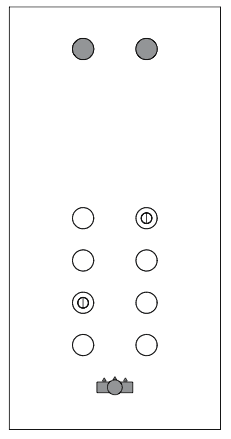To test the human capacity to precrastinate, researchers David Rosenbaum, Lanyun Gong, and Cory Adam Potts led 27 college students to an alley where there were two yellow plastic buckets filled with pennies—one on either side. On one side, the bucket was closer to the participant, and on the other, it was closer to the other end of the alley. The participants were asked to pick up either the right or left bucket, whichever seemed easiest, and carry it to the end of the alley.

The setup Psychological Science





